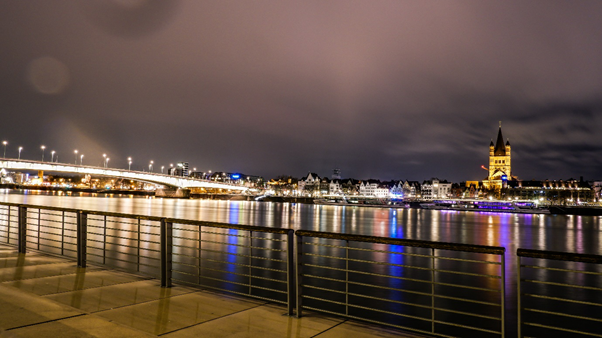Mohammed Mofizur Rahman (ELP 2013) | Research Associate, ITT, Köln University of Applied Sciences, Bangladesh (in Germany)
The COVID-19 pandemic is a wakeup call for all of us to rethink the way we have designed our society and reimagine the future that we are aiming for. It has served as a reminder about our responsibility to the Earth and to our fellow citizens. It has also highlighted the importance of strong leadership and unity towards solving ecological and societal problems.
In early 2020, I was set to return to Bangladesh after completing my tenure in Germany as an Alexander von Humboldt International Climate Protection Fellow. That was when the pandemic struck and a nation-wide lockdown was announced. Movement of any kind came to a screeching halt. Under the locked-down condition my apartment became a mini world. An avid traveler, I used the power of my imagination to journey through my memory lane as I sat in my study. My balcony turned into Paris, and the kitchen became the charming, narrow lanes of old Delhi. Zoom was my primary connection to the world. My memories then took me to Dhaka, the crazy capital of Bangladesh, where my mind still lives, while my physical self remains in Köln, a city by the Rhine.
The sirens from the ambulances were the most frequently played music in the city. Even in my dreams, I could hear the harsh sirens of the ambulance. I started to miss the warmth of smiling people. One of the most beautiful human expressions, the smile, was shunned behind the prison-like walls of the life-saving masks. After a few weeks of the lock down, I was no longer able to watch the television or even read a newspaper. The mounting death and infection counts were bothering me, even in my dreams. I was extremely traumatized, as my parent lived in Bangladesh, where COVID-19 measures were limited; my sister was working in a hospital; and my father-in-law lived in New York, one of the global hotspots of the virus. That is when I realized that the climate crisis has the potential to make the global population even more traumatized than the current pandemic if we do not act seriously and quickly.
Soon after the first wave was over, I took up a new role as an academic instructor at the Anant Fellowship for Climate Action in India. This ticked an important personal box for me—a climate leadership program in South Asia. The program brought lots of positive energy and hope in my life. It brought opportunities to interact, discuss, and debate about the climate crisis and its potential solutions. Twenty fellows joined virtually from around the world. Many were from India, which is in many ways my second home. The Anant Fellowship became my ‘home’ and ‘the world’ during the hard lockdown. I was able to travel to Kashmir, Delhi, Mumbai, London, Paris, and Zurich virtually with the fellows, lecturers, and mentors. All the ideas the fellows brought to the program, irrespective of their scope and scale, were inspiring and thought-provoking. It reminded me of my days in Berkeley. It was life-changing, and to me, felt like a lot more than a training program.
We need more programs like Beahrs Environmental Leadership Program and Anant Fellowship for Climate Action to make the world a better place. I look forward to potential collaborations between these two programs—where I feel I truly belong.

